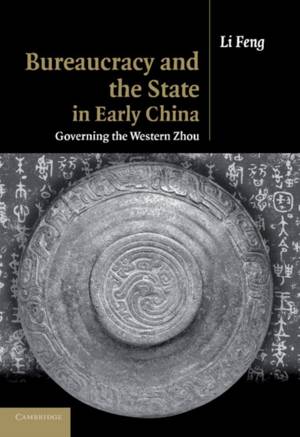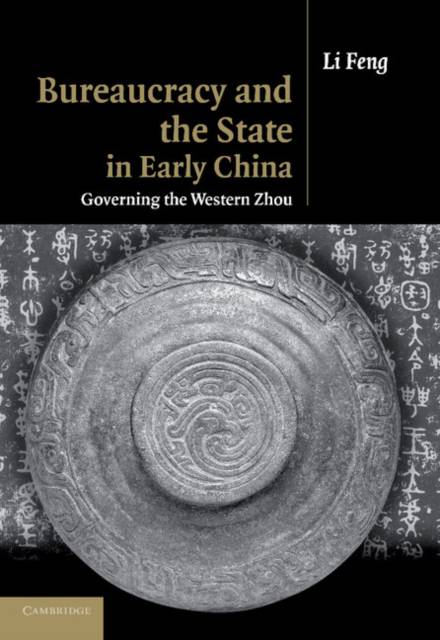
Je cadeautjes zeker op tijd in huis hebben voor de feestdagen? Kom langs in onze winkels en vind het perfecte geschenk!
- Afhalen na 1 uur in een winkel met voorraad
- Gratis thuislevering in België vanaf € 30
- Ruim aanbod met 7 miljoen producten
Je cadeautjes zeker op tijd in huis hebben voor de feestdagen? Kom langs in onze winkels en vind het perfecte geschenk!
- Afhalen na 1 uur in een winkel met voorraad
- Gratis thuislevering in België vanaf € 30
- Ruim aanbod met 7 miljoen producten
Zoeken
€ 72,45
+ 144 punten
Uitvoering
Omschrijving
Ancient Chinese society developed a sophisticated and complex bureaucracy which is still in operation today and which had its pristine form in the government of the Western Zhou from 1045 to 771 BC. Li Feng, one of the leading scholars of the period, explores and interprets the origins and operational characteristics of that bureaucracy on the basis of the contemporaneous inscriptions of royal edicts cast onto bronze vessels, many of which have been discovered quite recently in archaeological explorations. The inscriptions clarify the political and social construction of the Western Zhou and the ways in which it exercised its authority. The discussion is accompanied by illustrations of the bronze vessels and their inscriptions, together with full references to their discovery and current ownership. The book also discusses the theory of bureaucracy and criticizes the various models of early-archaic states on the basis of close reading of the inscriptions.
Specificaties
Betrokkenen
- Auteur(s):
- Uitgeverij:
Inhoud
- Aantal bladzijden:
- 400
- Taal:
- Engels
Eigenschappen
- Productcode (EAN):
- 9781107405844
- Verschijningsdatum:
- 25/10/2012
- Uitvoering:
- Paperback
- Formaat:
- Trade paperback (VS)
- Afmetingen:
- 170 mm x 244 mm
- Gewicht:
- 635 g

Alleen bij Standaard Boekhandel
+ 144 punten op je klantenkaart van Standaard Boekhandel
Beoordelingen
We publiceren alleen reviews die voldoen aan de voorwaarden voor reviews. Bekijk onze voorwaarden voor reviews.









